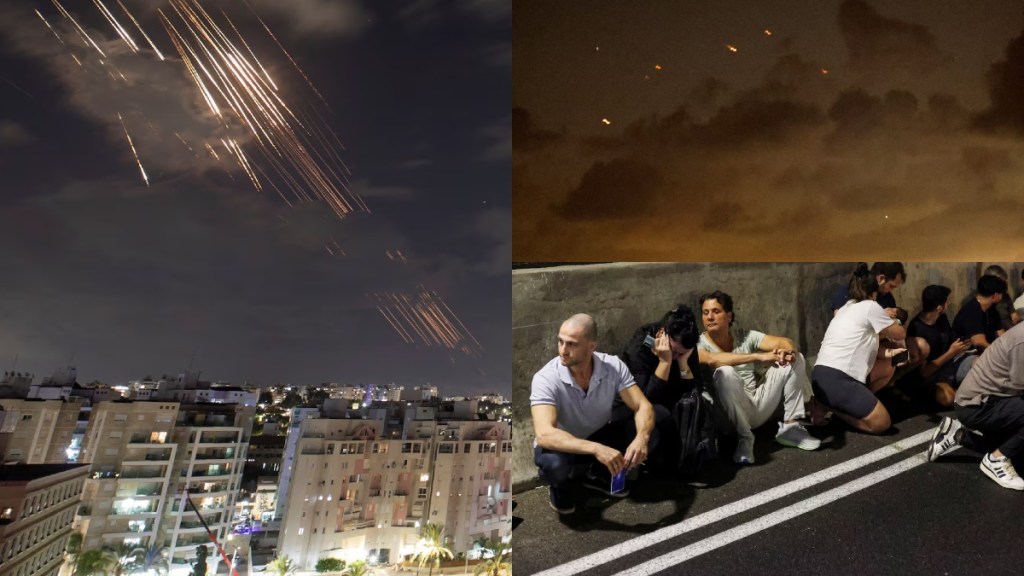India has voiced serious concerns regarding the worsening security situation in West Asia, specifically the escalating conflict between Iran and Israel. As tensions rise, India has reiterated its appeal for restraint and the protection of civilians, emphasizing the need for dialogue and diplomacy to prevent the conflict from spreading further across the region.
On October 2, 2024, the Ministry of External Affairs (MEA) issued an advisory cautioning Indian nationals against non-essential travel to Iran, while advising those already in the country to stay vigilant and maintain contact with the Indian Embassy in Tehran.
Growing Conflict Between Iran and Israel
The advisory comes in the wake of Iran’s recent ballistic missile attack on Israel, which has triggered global concerns about the potential for a broader regional conflict. On the evening of October 1, Iran launched an aggressive assault involving 180 ballistic and hypersonic missiles targeting Israeli military installations, including strategic radars and tank brigades at the Nevatim Air Base and Hatsrim Cantonment. While the Iranian military claimed that only military targets were hit, the attack has sparked fears of further escalation.
Israel has responded with a strong declaration of revenge, with Prime Minister Benjamin Netanyahu labelling the Iranian attack as a grave mistake. As per reports, the attack has affected millions across Israel, and though Iran refrained from targeting economic infrastructure, the Israeli military has suffered significant losses. Videos circulating on social media depict the chaos, with missile strikes landing across various parts of Israel, including major cities like Tel Aviv and Haifa.
This is not the first major assault between the two countries this year. In April 2024, Iran launched a similar offensive involving 300 missiles, rockets, and drones, though Israel’s Iron Dome successfully intercepted 90% of the missiles. However, the recent inclusion of hypersonic missiles in Iran’s attack poses a greater challenge, as Israel’s defence systems, including the Iron Dome, were unable to fully neutralize the incoming threat.
Impact of the Attack
Initial reports from the Israeli Defence Forces (IDF) confirm the extensive damage caused by the attack. In addition to military losses, an oil rig in the Mediterranean Sea has been reportedly set ablaze, and Iran claims that at least 20 Israeli F-35 fighter jets have been destroyed. The impact of the attack has been felt across Israel, with civilians seeking shelter in bunkers and bomb shelters, and Prime Minister Netanyahu himself reportedly evacuating to a nuclear bunker.
The conflict also has a human toll. In Tel Aviv, armed terrorists took advantage of the chaos, opening fire on civilians using the light rail system. At least eight people were killed in the attack, drawing parallels to the October 7 attacks by Hamas. The growing complexity of the situation has forced international leaders to respond. U.S. President Joe Biden convened an emergency meeting with his national security team, while Russian President Vladimir Putin also held urgent discussions in light of the events.
India’s Advisory and Diplomatic Stance
India’s advisory reflects its broader concern for the safety of its nationals amidst the escalating conflict. “We are closely monitoring the recent escalation in the security situation in the region. Indian nationals are advised to avoid all non-essential travel to Iran. Those currently residing in Iran are requested to remain vigilant and stay in contact with the Indian Embassy in Tehran,” stated the Ministry of External Affairs on October 2.
This advisory underscores India’s cautious approach in safeguarding its citizens while pushing for diplomatic solutions. The emphasis on restraint and diplomacy has been a consistent feature of India’s foreign policy in West Asia, a region where it has both strategic interests and a significant diaspora. Any further escalation in the conflict could have serious implications for India, not only in terms of security but also in terms of energy supplies, given its reliance on oil imports from the region.
Expert Opinion: A Region on the Brink
According to Md. Muddassir Quamar, an Associate Professor at Jawaharlal Nehru University’s Centre for West Asian Studies, the situation in West Asia is rapidly deteriorating, with little hope for a peaceful resolution in sight. “The region is slowly moving towards a wide scale and open war that is likely to keep them unsafe and unstable for months, or years, to come. The war has already transformed into an open Iran-Israel confrontation and it is unlikely to end through peaceful negotiations,” he said.
Quamar further elaborates on the growing fragility of the region, noting that “both sides are prepared to fight and are unable to see a path towards reconciliation.” He points out that the involvement of major powers, such as the U.S. and Russia, has only added to the complexity of the conflict, as these countries are taking sides rather than pushing for a de-escalation. The result, Quamar argues, is a situation where both Iran and Israel are digging in for a protracted war, leaving the rest of the region in a state of uncertainty.

